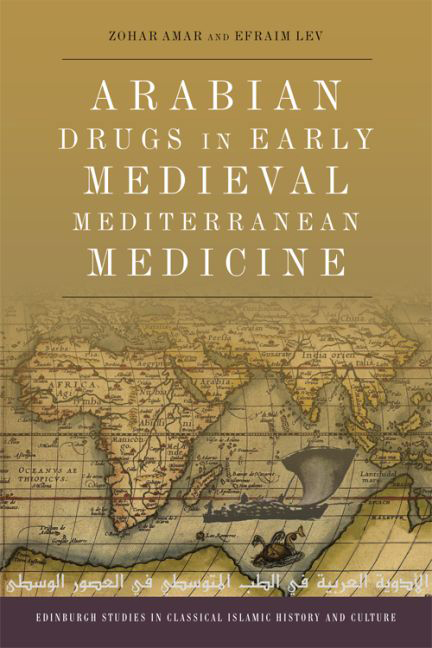Book contents
- Frontmatter
- Contents
- List of Plates
- List of Tables
- Preface
- Map: The Origin of the Main Medieval Arabian Drugs
- 1 Introduction
- 2 Agricultural and Pharmaceutical Innovations: Milestones in Research and Case Studies
- 3 ‘Arabian’ Substances
- 4 Discussion and Conclusions
- Bibliography
- Index of English Names
- Index of Arabic Names
- Index of Scientific Names
2 - Agricultural and Pharmaceutical Innovations: Milestones in Research and Case Studies
Published online by Cambridge University Press: 27 April 2017
- Frontmatter
- Contents
- List of Plates
- List of Tables
- Preface
- Map: The Origin of the Main Medieval Arabian Drugs
- 1 Introduction
- 2 Agricultural and Pharmaceutical Innovations: Milestones in Research and Case Studies
- 3 ‘Arabian’ Substances
- 4 Discussion and Conclusions
- Bibliography
- Index of English Names
- Index of Arabic Names
- Index of Scientific Names
Summary
In this chapter we present the history of the research into the subject presented above with some adjacent issues, its criticism and the results of new research projects we have conducted that directed us to the methodology used and presented in this book, which deals specifically with the breadth of the phenomenon of the ‘new’ medicinal substances introduced and disseminated by the Arabs after their conquests and the special trade conditions that subsequently became available. Our first assumption is that most of these medicinal substances were unknown in the Middle East and Europe, and Arab control over the vast expanse of its conquests from India to Spain made possible the transfer and distribution of these substances from southern and eastern Asia. As mentioned above, many scholars have noted this phenomenon, yet focused and systematic research of this issue has never been conducted.
The main goal of our present research is to reconsider this phenomenon, that is, to reconstruct as complete a list as possible of all the ‘new’ medicinal substances that were more widely distributed than in the pre-Islamic period; to study the contribution and influence of these substances on the theoretical and practical medieval medical legacy; to understand how, and to what extent, these substances merge with the development and distribution of ‘new’ technologies and industries that evolved in the Middle Ages such as textiles and paper, and with the new trends, demands and fashions regarding perfumes, ornaments and foodstuffs; to trace the main routes of trade in these substances in the new ‘Arab space’; and to assess the actual relevance that should be ascribed to the Greek and Indian legacies in the formation of Arab medicine and pharmacology. To do so, we will first propose a methodology for the clearest possible identification of these new ‘Arabic’ substances.
Indian Pharmacology and Galeno-Arab Medicine
The field of materia medica is of leading importance in an assessment of the influence of the Indian legacy on Galeno-Arab medicine. One must ask how deeply and extensively southern and eastern Asian medicinal substances, namely from China, Tibet, India, Sind, Persia and Mesopotamia, penetrated the Galenic inventory after, or more precisely, thanks to the Arab conquests of the seventh century.
- Type
- Chapter
- Information
- Arabian Drugs in Early Medieval Mediterranean Medicine , pp. 48 - 81Publisher: Edinburgh University PressPrint publication year: 2017



